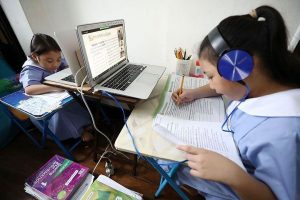Southeast Asia urged to remove barriers to full labor market participation
SOUTHEAST ASIA is not tapping its workforce to the full extent, with barriers keeping disadvantaged groups from participating in the labor market, the Organisation for Economic Co-operation and Development (OECD) said. In a report, the OECD said the region needs to “promote participation in the labor market and facilitate the full use of people’s skills […]

SOUTHEAST ASIA is not tapping its workforce to the full extent, with barriers keeping disadvantaged groups from participating in the labor market, the Organisation for Economic Co-operation and Development (OECD) said.
In a report, the OECD said the region needs to “promote participation in the labor market and facilitate the full use of people’s skills at work and in society.”
“Countries in the region still face multiple barriers to formal employment, especially among disadvantaged groups, and the use of skills in everyday life, such as through civic engagement and leisure activities, could be improved,” it added.
OECD Skills Strategies Head Andrew Bell said in a webinar on Wednesday that “Southeast Asia needs to develop relevant skills across the life course. Developing skills is the first step. To ensure countries gain economic and social value, they need to use the skills fully and effectively in society.”
Mr. Bell said that the coronavirus disease 2019 (COVID-19) pandemic accelerated the impact of digital transformation, globalization, and climate change on the supply and demand of skills.
“Everyone needs strong digital skills to participate in the economy. Southeast Asia still faces many challenges. Skill performance still remains low in international comparison, digital skills are often weak and schools don’t have the material and resources,” OECD Deputy Secretary-General Yoshiki Takeuchi said.
Southeast Asia is projected to be one of the fastest-growing locations for data centers, the OECD said.
However, the region still lags in terms of the supply of digital skills. Only 28% of individuals aged 15 years old and up can execute basic digital tasks.
“This low level can be explained by the low digital infrastructure in the region and lack of digital literacy training in teachers,” Mr. Bell said.
Around 22% of Southeast Asian children have a teacher with access to a working computer and only half of learners aged 10 to 13 years old had access to digital devices in their schools during the pandemic.
“Southeast Asia should facilitate access to tertiary education by reducing the most significant financial barriers, both in terms of tuition fees and cost of learning materials,” Mr. Bell said.
“Invest in professional development opportunities for teachers to equip them with better pedagogical skills,” he added.
The OECD recommended policies that would expand financial incentives for individuals and institutions to encourage uptake of skills developments in strategic industries, increase expenditure on research and development, and foster collaboration between institutions of higher education and industry.
It cited the Philippines’ Fast-Tracked S&T Scholarship Act of 2013 as one policy example.
The act provides scholarships to science, technology, engineering, and mathematics tertiary students in exchange for future services, including a guaranteed teaching position in a public or private school. — Luisa Maria Jacinta C. Jocson


















